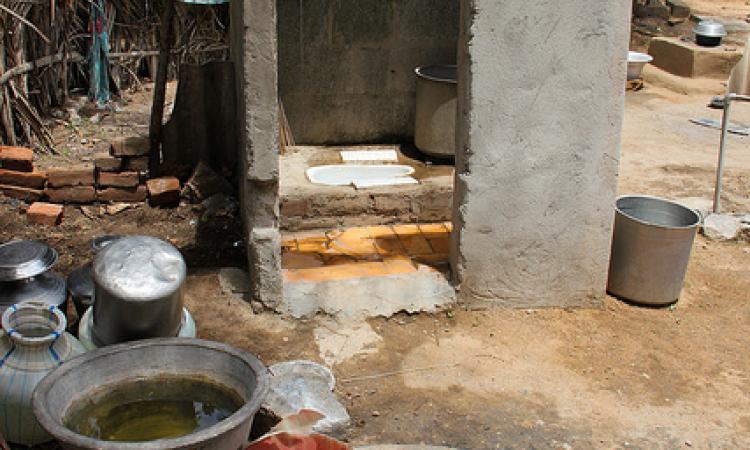
With over 638 million people defecating in the open, India’s obsession with constructing toilets is not surprising. In a bid to arrest the number of people going out to answer nature’s call, successive governments have been pushing their total sanitation drive under different names.
The Nirmal Bharat Abhiyan’s target was to completely wipe out open defecation in the country by 2017. As a motivator, the ‘Nirmal Gram Puraskar’ was introduced in 2003 – the first of its kind to encourage villagers to make their village 100% Open Defecation Free. The first awards were presented in 2006.
Girl power
The Tamil Nadu government’s resolve to improve the state of sanitation could very well be put in perspective by the number of Nirmal Gram Puraskars it landed in the inaugural year. 12 Gram Panchayats were awarded the NGP in 2005 along with one block from the state.
The state’s success can be attributed to the manner in which the development design skillfully tapped the hidden potential of women and SHGs. Harnessing the potential of Self Help Groups to get the message across, the government intensified efforts to not only create awareness about the benefits of using latrines, but also involved the SHGs and the community at large to design ways to deal with their solid waste. In addition, these groups were made responsible for monitoring progress.
This helped achieve twin benefits of a cleaner village as well as providing an extra source of income for those involved in managing solid waste generated locally. According top priority to girls and women, arrangements for anganwadis and schools were beefed up.
Enabling political environment
Availability of cheap supplies through Rural Sanitary Marts and a strong political will made it possible for Nandigram II block in East Medinipur District of West Bengal to ensure that all households had sanitary toilets. Seamless coordination between the Panchayats, timely allocation of funds and co-ordinated action of the State Sanitation Cell helped achieve this feat.
Constructing toilets was not the only concern. With the help of local youth clubs, an attempt was made to drive home the extended concept of sanitation which goes beyond just using toilets to relive one’s self. By introducing the concept of personal hygiene and cleanliness, the usage rates of individual latrines increased substantially across villages.
Appreciation across the border
Raj Samadhiyala, the only Gram Panchayat in Gujarat to have received the Nirmal Gram Puraskar, made heads turn in neighbouring Pakistan.
No sweepers are employed by the Panchayat as the onus on keeping the villages clean lies entirely on the villagers themselves. Gutkha sales are banned and so is the bursting of crackers. 60,000 trees have been planted and check dams constructed to conserve the scarce water resource. The positivity spread across the border and the Pakistan government invited villagers from Raj Samadhiyala to interact with people’s representatives to and improve the quality of life across the border.
Small steps, big successes
Local success stories are sure to have a positive effect on the way sanitation is viewed and will serve as a catalyst to incite useful activity at the community level. With the monetary benefits and publicity at stake, the Nirmal Gram Puraskar is expected to go a long way in motivating hundreds of others looking to make their villages little slices of heaven on earth.
Path Alias
/articles/nirmal-gram-puraskar-changing-landscapes-and-mindsets